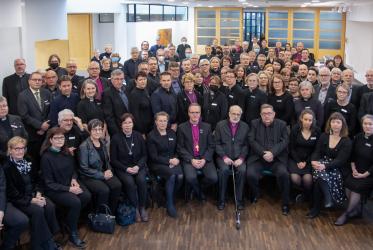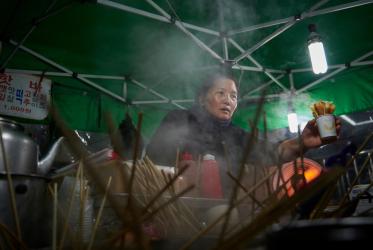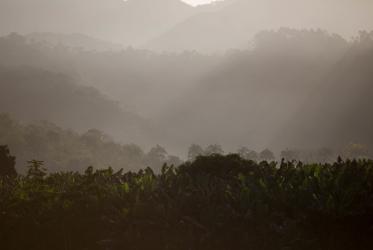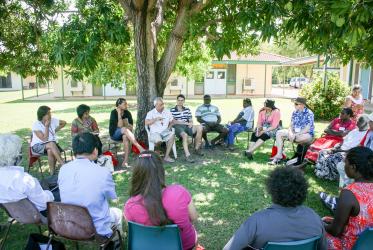Displaying 1 - 20 of 32
COVID-19 in conflict zones: “a crisis within another crisis”
27 November 2020
CCIA meets in Brisbane with focus on Pacific regional priorities
19 February 2020
Hanbeet Rhee: “Young people can be bridges”
17 October 2019
Peacemakers at work in Sri Lanka
29 April 2019
Thursdays in Black: sharing support, transforming lives
21 February 2019
Protect the Amazon, urges WCC statement
22 November 2017
A safe space for sinners to change and for pain to be shared
03 August 2017
WCC offers condolences upon death of Anglican Archbishop Turei
13 January 2017
Indigenous spirituality: can it transform injustice into justice?
01 September 2016













